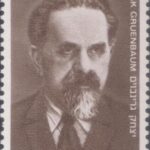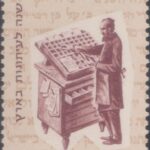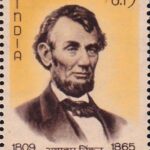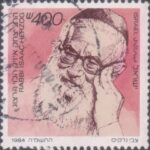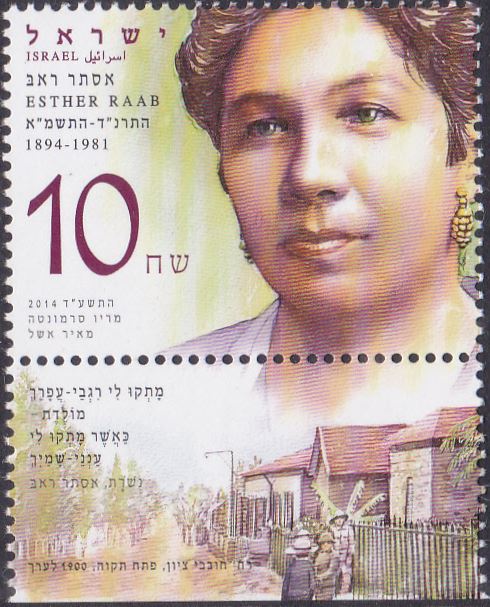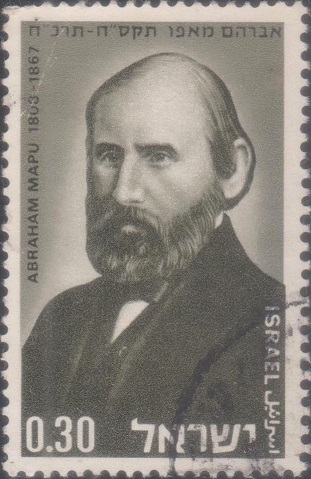
Abraham Mapu
A commemorative postage stamp on Abraham Mapu, a Lithuanian novelist :
 Issued by Israel
Issued by Israel
Issued on 8 Oct, 1968
Designer : The stamp was designed by O. Adler, Holon
Type : Stamp, Postal Used
Colour : Dark Olive Green
Denomination : 30 Agorot
Name : Abraham Mapu
Born on 10 Jan, 1808 at Kaunas, Lithuania
Died on 9 Oct, 1867 at Königsberg, Russia
About :
- Avraham Mapu, one of the greatest Zionist novelists and historians of the 19th century, first became enthralled with the new Hebrew literary trend while teaching in the homes of wealthy Jewish families in Slobodka, Kovna, where he was born.
- Mapu studied Jewish law and tradition in “Cheder” till the age of 12. Then, in 1820, he began teaching himself, and supporting himself by teaching. He married in 1825, and 13 years later settled in Kovna for good.
- At the same time he was greatly influenced by the famous Jewish thinker Zalman Sachs. In 1853 he stunned literary circles with a novel called “Love of Zion”, an epic story set against the background of Israel and its glory during the period of the First Temple.
- The book was read everywhere, and was translated into English, French, Russian, Yiddish, Ladino and Arabic.
- Every great Zionist leader of this period readily admitted that the Zionist movement would have been incomplete without Mapu’s novel.
- The writer quickly became the most prominent of a circle of learned Lithuanian Jews, and won acclaim for his ability to endow modern Hebrew literature with the spirit and language of the Bible.
- In 1865 he published an historical novel, “the Guilt of Shomron”, this was followed by another book containing a scathing criticism of Jewish life in Lithuania.
- Mapu also wrote a number of text books which served as important guide to several young generations, among them “the Education of Youth,” “The Beliefs of a Pedagogue,” and two well-known stories – “Dreamers of Dreams,” and a story called “the House of Hanan.”
- In 1867 he became ill, and travelled to Germany in search of a cure. He died there on Yom Kippur, 1867, but his memory lives on as a pillar of the early days of Zionism.
Subscribe
Login
0 Comments
Oldest


